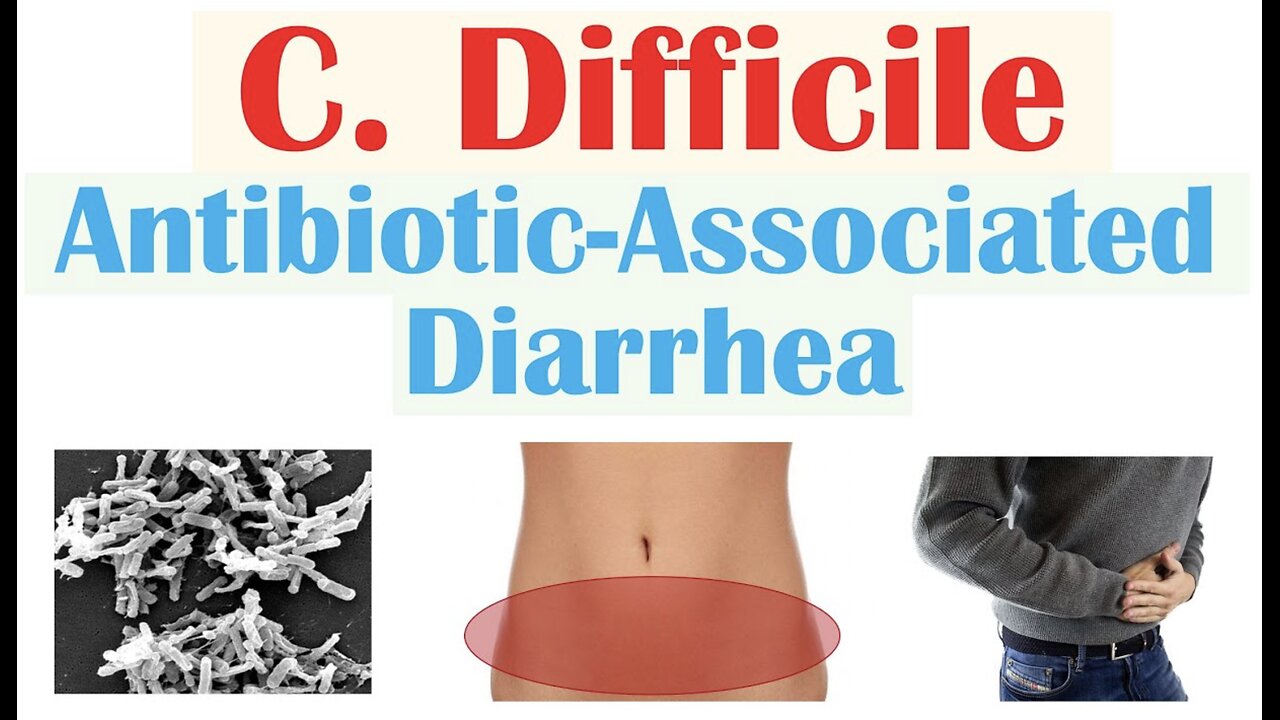Premium Only Content

Clostridium Difficile (Antibiotic-Associated Diarrhea) Risk Factors, Symptoms, Diagnosis, Treatment
Clostridium (Clostridioides) Difficile (“Antibiotic -Associated Diarrhea”) | Risk Factors, Symptoms, Diagnosis, Treatment
Clostridium (Clostridioides) Difficile (or “C. Diff”) is a gram positive bacteria that is an important cause of non-inflammatory acute diarrhea. C. difficile infections are more likely in patients who have recently taken certain antibiotics, in patients who have recently been hospitalized and in the elderly. C. difficile also causes a variety of signs and symptoms and complications (including fulminant colitis and toxic megacolon). The diagnosis of C. difficile occurs by stool culture, stool PCR and other methods and the treatment involves antibiotics including metronidazole and vancomycin.
I hope you find this lesson helpful. If you do, please like and subscribe for more lessons like this one!
JJ
**MEDICAL LEGAL DISCLAIMER**: JJ Medicine does not provide medical advice, and the information available on this channel does not offer a diagnosis or advice regarding treatment. Information presented in these lessons is for educational purposes ONLY, and information presented here is not to be used as an alternative to a healthcare professional’s diagnosis and treatment of any person/animal. Only a physician or other licensed healthcare professional are able to determine the requirement for medical assistance to be given to a patient. Please seek the advice of your physician or other licensed healthcare provider if you have any questions regarding a medical condition.
-
 2:03:42
2:03:42
Inverted World Live
11 hours agoBigfoot Corpse Coming to the NY State Fair | Ep. 94
104K24 -
 6:16:23
6:16:23
SpartakusLIVE
12 hours ago$1,000 Pistol Challenge || #1 ENTERTAINER of The EONS Eradicates BOREDOM
80.3K2 -
 2:33:37
2:33:37
TimcastIRL
9 hours agoTrump Orders Review of Smithsonian For Being Woke & Out of Control | Timcast IRL
182K73 -
 3:09:10
3:09:10
Barry Cunningham
12 hours agoPRESIDENT TRUMP HAS TAKEN THE MONSTER AWAY FROM THE LEFT! HORROR STORIES WON'T WORK ANYMORE!
81.6K80 -
 1:29:55
1:29:55
WickedVirtue
7 hours agoLate Night Fortnite w/ Friends
50.9K -
 3:34:06
3:34:06
This is the Ray Gaming
7 hours ago $1.07 earnedCould you be? Would you be? Won't you be my RAYBOR? | Rumble Premium Creator
30.9K -
 1:46:52
1:46:52
JahBlessGames
8 hours ago🎉Come een' and come tru' - VIBES | MUSIC | GAMES
52.3K2 -
 38:47
38:47
MattMorseTV
10 hours ago $14.49 earned🔴Tulsi just CLEANED HOUSE.🔴
68.2K122 -
 6:24:06
6:24:06
Reolock
11 hours agoWoW Classic Hardcore | WE'RE BACK!!
30.8K1 -
 3:46:13
3:46:13
SynthTrax & DJ Cheezus Livestreams
13 hours agoShell Shock Live - The Scorched Earth Remake/Upgrade - 4pm PST / 7pm EST - RUMBLE GAMING
47.6K